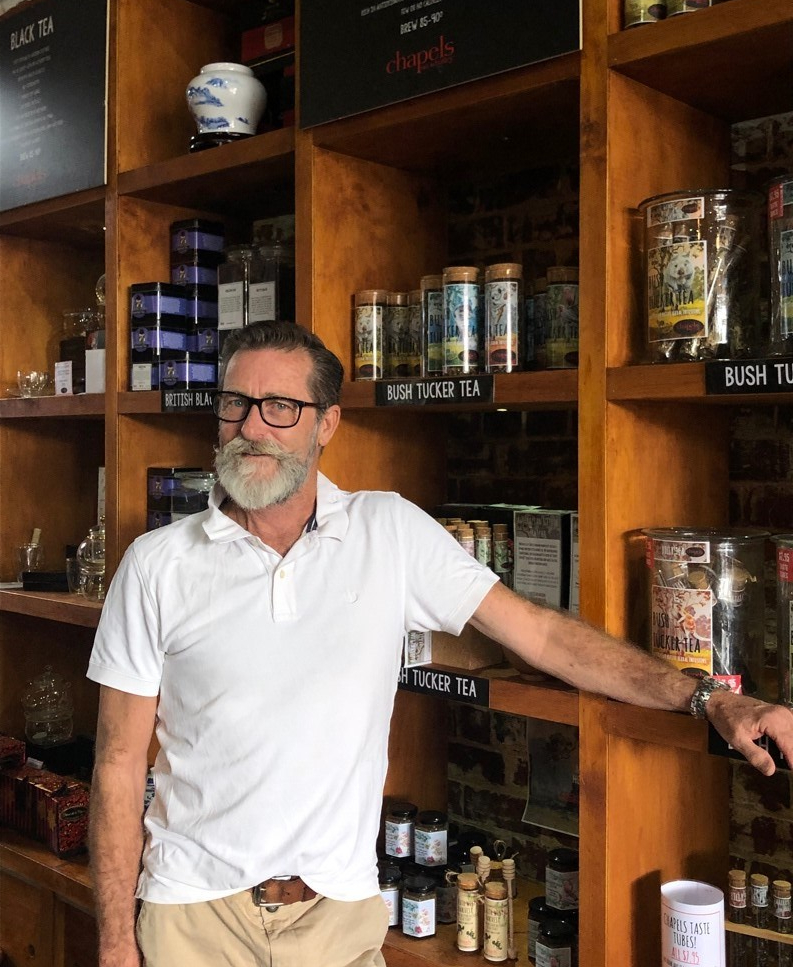Image description: Keith Archer – with square, black glasses and a large grey beard – stands in front of a large set of shelves filled with teas. He rests one arm on one of the shelves, and looks at the camera.
By Francesca De Nuccio
Amid the sudden closures and dramatic upheavals to small businesses caused by COVID-19, there have been some businesses that are doing alright. In fact, some of them are thriving.
Businesses on Whatley Crescent in Maylands decided to put competition aside and unite. The collection of cafes and retailers came together to create ‘Bring Whatley Home’ – a shared delivery service to make sure they outlived the crisis.

‘Bring Whatley Home’ poster
Customers can call any shop on the street and ask for a variety of goods, such as bread, milk, hot meals, cakes, games and even fashion items. They will be delivered for free in the local areas.
“Because of this initiative, every retailer on the street is still trading and keeping their head above water,” Chapels on Whatley teahouse co-founder Keith Archer said.
Mr Archer said anything he endeavoured to do – as far as adapting his product – would have affected every other business on the street, which would have caused competition for the limited amount of money that has emerged from this time.
“If we all did our own thing, we would be struggling a lot more and probably would have lost a couple of the other cafes,” Mr Archer said.
He said since the lockdown announcement of cafés at the end of March, online sales of Chapels’ teas have increased. However, ninety per cent of his business is the experience in a specialised environment – which was taken away from him in “one foul swoop.”
For many stores, delivery apps like UberEats were not an option, as they take thirty per cent of the sale price – which Keith says, “was just not viable.”
Mr Archer said whilst big businesses were able to bring volume and the illusion of choice and service to the market, the situation we have now found ourselves in has proved the opposite – and it has been the small businesses that have delivered to local consumers effectively, on an ongoing basis.
“Local retailers can turn on a dime to adapt,” Keith said.
He said the pandemic had highlighted the need for people to feel part of the community and feel supported; prior to the outbreak, that was not the case.
“It is times like these that small businesses will stand by the public,” Mr Archer said. “I truly hope we can maintain this service as a group once the pandemic is over and I am excited about what is to come in the future.”
Images courtesy of Francesca De Nuccio

